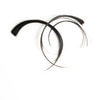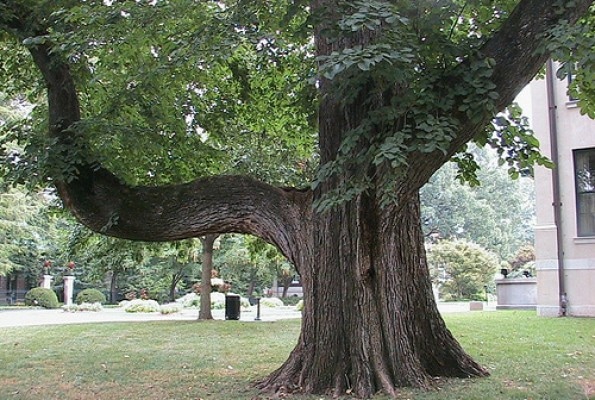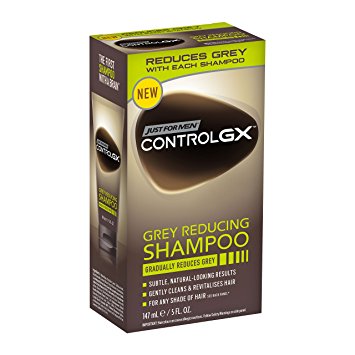|
BBC Radio broadcast an interview with an elderly academic, Dr. Clothier, who discoursed on the government's efforts to stop the spread of Dutch Elm Disease, which had been infecting many of England's trees. Dr. Clothier described some startling recent discoveries about the tree disease. For instance, he referred to the research of Dr. Emily Lang of the London School of Pathological and Environmental Medicine who had found that exposure to Dutch Elm Disease immunized people to the common cold.
Unfortunately, there was a side effect. Exposure to the disease also caused red hair to turn yellow. This was attributed to a similarity between the blood count of redheads and the soil conditions in which affected trees grew. Therefore, redheads were advised to stay away from forests for the foreseeable future. This article first appeared here.
0 Comments
What's Inside This Month
Dutch Elm Disease Infects Redheads Everything Your Need for Perfect Hair Make Over Your Man: Must Know Tips Drug Store Products? Are You Really Getting a Good Deal? Men's Style and Grooming Guide The Best Bangs for Every Hair Type Are you Allergic to Your Hair Products? Chemical Allergies: Shampoo, Cleaners, and More How to Use a Curl Wand and Flat Iron Ribbon Curls with Your Flat Iron New Service: Keratin Smoothing Treatments Movies Opening This Month How to Shave with a Safety Razor Safety Razor Myths and Facts You Won't Find on Wikipedia Coming Soon on DVD / Streaming Dates for Your Calendar: April Travel the World for Free Desk Stretches to Alleviated Tightness from Sitting All Day Drinks Anyone? 25 Cocktails You Should Know The Story of Hair - The Origin of the Barber's Pole In the News: Hair and Beauty 3/29/2017 0 Comments Just for Men: Control GX ShampooWhat is Control GX Shampoo? Control GX Shampoo by Just For Men claims to use breakthrough technology that can gradually reduce gray hair with each shampoo for subtle, natural looking results. The manufacturer tells us that you'll use Control GX just like any other daily shampoo. After a few washes, you'll notice a subtle reduction in the number of gray hairs. From there, you have complete control over how gradually your gray disappears at the start by using every day, or every other day. When you’ve achieved the look you want—often within two to four weeks—you’ll continue using Control GX three to four times per week for maintenance. Results can last up to eight weeks. In addition to gradually reducing your gray, Control GX Shampoo also promises to gently and thoroughly clean and revitalize hair, while increasing volume for a thicker, fuller look. Just For Men’s lineup has been a staple among hair and beard coloring products for decades, but does this necessarily mean that their Control GX Shampoo is worth the money? Even then, is it really “shampoo with a brain”? Click here for a review that will discuss all the essential facts so you can make a more empowered purchase. Legit or Scam?
This was a stand out comment for me from the article: “most dyes that promise to gradually reduce gray hair use metallic salts, which: “… react with the sulfur in the protein chains of the hair to create a natural looking color in the hair over a period of repeated exposure.”” Be wary of home color products that may contain metallic salts. Metallic salts fall under the category of progressive dyes, this means with every application the hair color is going to go darker and darker. Over time the hair is going to feel rough. Metallic salts are extremely reactive to other chemicals! If you try to use most hair color removers (because the hair is too dark now from the progressive darkening) major chemical reactions with the metallic salts are going to occur inside the hair shaft and that can result in horrible burning fumes or even smoking! All I know as a Cosmetologist is that if you have used a product containing metallic salts, or even henna, there will be no way to predict the outcome, resulting color or condition of your hair if you ever decide to remove or color over your hair after using these products. My best advice: If you want to blend away that grey, schedule an appointment with your hairstylist and let us take care of hair. Most of these services only take 10 to 15 minutes and can be done while you’re resting your head in the shampoo bowl. Who knew something as simple as taking a shower could be so challenging?
Most of us have been showering regularly since we were kids. We’ve got the whole thing down. Or so we thought. After talking to a hairstylist and dermatologist, we’ve found out a few things that we’re actually doing wrong. Click through and check out if you’re making these showering mistakes. The water’s too hot. There’s nothing like starting the day off with a nice hot shower. But if the water temperature is too high, it can actually do more damage than good. “Hot water can strip the natural oils from your skin, leaving it dry and vulnerable to cracking,” explains dermatologist Dendy Engelman. “Losing these oils compromises our skin’s barrier, thus protection from irritants.” This is most dangerous in the winter (when you’re most tempted to use extra hot water) because skin is already prone to dryness. And apparently hot water isn’t great for hair health either. Butterfly Studio Salon’s expert stylist Jason J Dougherty explains that it’s best to use warm water to open up the hair cuticle to remove dirt and oils. Then, rinse with cold water to close it up. “It will prevent hair loss in the shower, reduce frizz, and add a lot more shine,” he says. Your water’s unfiltered. There are certain places that have hard water, which can have a negative effect on your hair and skin. What this means is that the unfiltered water may contain many harmful additives such as minerals, oxidizers, calcium, magnesium, silica, and iron. “These can leave residue on the skin and hair causing build-up, dryness, and irritations,” explains Dr. Engelman. With the residue leaving a coat over the skin and hair, products are unable to fully penetrate to properly clean the area. This can create dull looking finish to both the hair and skin. Dougherty also explains that these chemicals can strip hair color, dulling out the look. So if you do happen to live in an area with hard water, install a filtering system. You’re using the wrong cleanser. Just because you like the smell of the body wash you’ve been using for years, doesn’t mean it’s the best option. A lot of available cleansers contain harmful chemicals, fragrances, parabens, and sulfates, which all can increase flare-ups. Dr. Engelman recommends oil-based cleansers to maintain hydrated, healthy skin. “Oil-based cleansers eliminate impurities without drying out the skin,” she explains. “Essentially the oil binds to the oils on your face and the cleanser rinses them away, without striping your skin of its good natural oils.” You’re shampooing too much. Unless you have ultra-fine, thin hair, you really don’t need to wash it every day. If you’re over-shampooing, the results are similar to using harsh chemicals on your skin. “It strips the hair of its natural oils and will lead to your hair becoming quite dry and brittle over time,” explains Dougherty. So if you notice your hair seems drier than usual, cut back to shampooing every other shower. It’s all about finding the right balance. You’re over exfoliating. Exfoliating can be seriously beneficial to the skin. It rids the skin of any dead skin cells and promotes cell turnover. However, over-exfoliating can do a lot of damage. “It will expose the skin, weaken skin-barrier function and in some cases trigger inflammation,” explains Dr. Engelman. This can create a sort-of vulnerability to the skin and create sensitivity, infection or irritation. Ideally, you only need to be exfoliating two or three times a week. And if you are experiencing any sensitivity or inflammation, you should cut back. You don’t moisturizer post-shower. Dr. Engelman notes that the few minutes post-shower can be just as important as those spent in the shower. And post-shower, moisturizing is key. “Applying oil and lotion on wet skin will allow the product to lock moisture in by trapping some of the water on the skin,” she explains. “Keeping it from evaporating, the glycerin in the lotion helps to bind to water molecules, which not only gives a soft, supple feeling but strengthens the skin barrier.” This little shift in habit can make all the difference to the skin’s health and overall feel. This article first appeared on Domino.com  A hard beauty truth: Split ends can’t be made whole again. Although there’s a whole arsenal of products that can make fried ends look better, the only way you can really fix the situation is by trimming off the damaged hair. But what if you’re growing out your hair and don’t want to sacrifice any of your length? Meet hair dusting. It’s a way of cutting off the dead ends without going shorter by an inch or two. “Hair dusting is healthy hair measure. It is a technique in which you only address the damaged ends of the hair and not necessarily any length from the haircut at all,” explains L.A.-based hairstylist Sal Salcedo who uses the technique on his clients. “It is a grooming technique that allows the hair strand to be healthy by removing what is unhealthy and by doing so allowing for growth and stopping further breakage.” It’s done by snipping the bottom of each strand to eliminate the damaged hair tip, similar to removing lint from your favorite wool jacket. While Salcedo says the technique works on all hair types, strands should be smoothed out first so that the split ends stick up. This way, when your stylist runs their scissors over your hair, the stray pieces get removed. So, why haven’t you heard of hair dusting before? According to Salcedo the method can be time consuming since you’re only taking off about an eighth of an inch on each hair strand. Since you won’t lose any of your precious length, chances are you won’t put off making regular salon appointments, which in turn will benefit your mane’s health. “Since we all know that all hair weakens at some point, if you never cut your hair at all, it’s only a matter of time before the oldest, and weakest portion of the hair strand, the ends, breaks and splits,” Honey Artists hairstylist Corey Tuttle says. “This will prolong the damage and possibly make it worse by not cutting and holding on to the ends of your hair. Dusting your hair will eliminate the downside of both scenarios.” Want to see the technique in action? Look no further than Salcedo’s Instagram. Pretty mesmerizing, right? If you want your hair dusted the next time you visit your stylist, Salcedo says to make sure you tell them at the beginning of your appointment to only snip the ends of your strands.
What are the Benefits of Dusting? It’s recommended that you trim your hair to keep it healthy. Dusting your hair may be the preferential method for you due to the following: • Helps to maintain maximum length • It keeps your hair neat and free of loose ends • It will help to speed up your detangling sessions • It’s suitable for all hair lengths It’s recommended that you should "dust" every 6-8 weeks to help maintain healthy, longer hair. Don't put off getting that "trim" any longer. Book an appointment with me now for a dusting to maintain your long hair and keep it healthy. |
Hair by BrianMy name is Brian and I help people confidently take on the world. CategoriesAll Advice Announcement Awards Balayage Barbering Beach Waves Beauty News Book Now Brazilian Treatment Clients Cool Facts COVID 19 Health COVID 19 Update Curlies EGift Card Films Follically Challenged Gossip Grooming Hair Care Haircolor Haircut Hair Facts Hair History Hair Loss Hair Styling Hair Tips Hair Tools Health Health And Safety Healthy Hair Highlights Holidays Humor Mens Hair Men's Long Hair Newsletter Ombre Policies Procedures Press Release Previous Blog Privacy Policy Product Knowledge Product Reviews Promotions Read Your Labels Recommendations Reviews Scalp Health Science Services Smoothing Treatments Social Media Summer Hair Tips Textured Hair Thinning Hair Travel Tips Trending Wellness Womens Hair Archives
July 2025
|
|
Hey...
Your Mom Called! Book today! |
Sunday: 11am-5pm
Monday: 11am-6pm Tuesday: 10am - 6pm Wednesday: 10am - 6pm Thursday: Closed Friday: Closed Saturday: Closed |






 RSS Feed
RSS Feed